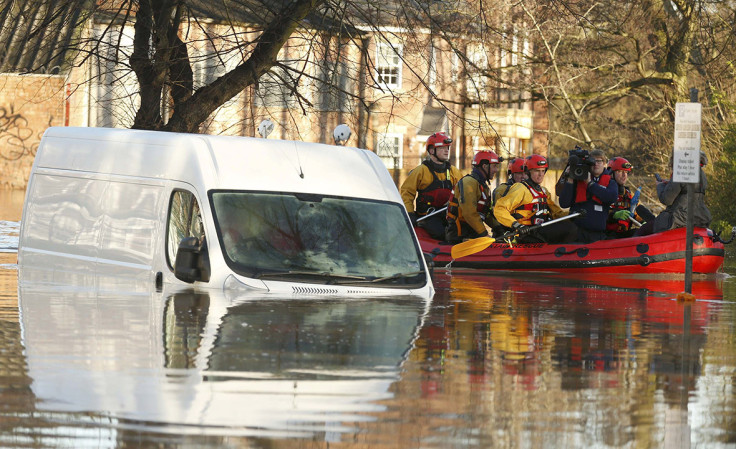UK floods: Storms could 'destabilise' FTSE 100 as waters continue to rise in northern England

The effects of flooding across the north of England could ripple as far as the FTSE 100 after a post-Christmas slow down and increasing cost of damage caused by rising waters. Swathes of the country has been submerged under floodwater after rivers in Cumbria, Yorkshire, Lancashire and Greater Manchester burst their banks in recent days.
Economists have predicted the flooding could shrink Britain's GDP by 0.2% as businesses are forced to close their doors, while agriculture output has also been hit. Shoppers in those areas are also less likely to hit the high streets in the wake of the floods.
Accountancy firm KPMG has already estimated that the total cost to households and businesses could rise to as much as £5.8bn (€7.9bn, $8.6bn). And Spreadex financial analyst Connor Campbell said the combination of a festive slowdown in the markets meant the floods could impact the UK's indices of leading shares.
"With estimates suggesting a cost of £5bn-plus, the tragic flooding of the past few weeks could have a destabilising effect on the FTSE this Tuesday, especially with thin trading volumes and little economic data to distract investors," he said. The FTSE 100 was up 0.55% at 6,289.32 shortly before 2pm on 29 December.
Visiting areas hit by the floods, Prime Minister David Cameron said the government would commit funds to flood defences between now and 2020. "We are going to spend £2.3bn on flood defences in this parliament but we will look at what's happened here and see what needs to be done," he said.
The Environment Agency has issued nine severe flood warnings in place in north east and north-west England and more than 100 other flood alerts across England and Wales. South-west Scotland and Cumbria are bracing themselves for Storm Frank, which is set to hit the regions on 29 December and bring with it up to 150mm of rain.
© Copyright IBTimes 2025. All rights reserved.






















